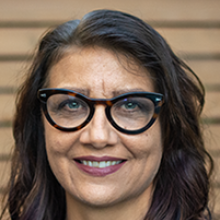Advancing Diversity, Equity, Inclusion, and Accessibility in Apprenticeship
The AIR apprenticeship team has worked for over 15 years to expand the use of apprenticeship as a talent development strategy that benefits both workers and employers. In all our apprenticeship projects, we embed a focus on supporting access and opportunity for diverse individuals and ensuring programs are designed and operated with attention to equity and inclusion. Examples of AIR projects that advance diversity, equity, inclusion, and accessibility (DEIA) in and through apprenticeship programs are listed below.
From AIR’s national technical assistance (TA) role with states across the country to projects working with employers to launch new programs, we use data and evidence to better understand DEIA in apprenticeship, facilitate the partnerships needed to support the success of diverse individuals, and design strategies and document practices that mitigate the factors impacting apprenticeship program completion. We take a holistic approach to supporting individuals through their entire apprenticeship experience, from first awareness of apprenticeship opportunities through program completion and career advancement.
Partnering with States to Expand Apprenticeship
Through the State Apprenticeship Expansion Project, AIR delivers TA to help states and partners develop sustainable, systemic approaches to advancing DEIA in apprenticeship. Our goal is to build the capacity of states to conduct outreach to employers and partners interested in increasing workforce diversity through apprenticeships; develop outreach materials and strategies to reach diverse populations; provide services to support apprentice success; and assess outcomes for demographic groups.
A key component of this work is creating a framework for integrating DEIA into all elements of state apprenticeship expansion, including leadership and policy, business engagement, capacity building, apprentice pipelines, and career pathways. We host DEIA Innovation Cohorts that guide state teams through identifying apprentice diversity challenges and goals, examining data and exploring root causes to discover systemic barriers, exploring promising practices and new partnership opportunities, and developing action plans. We also develop actionable resources, facilitate peer-to-peer learning, and bring an equity lens to our customized TA coaching with every state.
Supporting Apprenticeship EEO Implementation
AIR partnered with the U.S. Department of Labor, Office of Apprenticeship (OA) to support implementation of new apprenticeship Equal Employment Opportunity (EEO) regulations. From 2017 to 2021, AIR developed a clearinghouse of TA and training resources to educate apprenticeship stakeholders about the new regulations and how the EEO provisions can help advance DEIA.
All materials from the Apprenticeship EEO Technical Assistance project are posted on a website designed by AIR in coordination with OA and its technical website contractor. Examples of resources include a set of quick reference guides to increase understanding of the EEO provisions; a suite of training and related resources for providing anti-harassment training; a series of webpages and supportive materials on each of the EEO protected populations; and a guide on Affirmative Action Plans.
Advancing Diversity in the Tech Workforce
Since 2021, AIR has worked as an industry intermediary to drive the creation of new apprenticeship programs in tech occupations and increase and diversify the tech workforce. AIR works with a network of businesses and partners that spans over 25 states to design, launch, and sustain tech apprenticeships. Through a comprehensive suite of workshops and tools developed for our partners, we have embedded strategies for developing inclusive programs and recruiting, selecting, and supporting apprentices from diverse backgrounds. We also provide one-on-one coaching to businesses and partners to support DEIA in their apprenticeship programs. As a result of these focused efforts, over 50% of apprentices in the project are from underrepresented populations.

